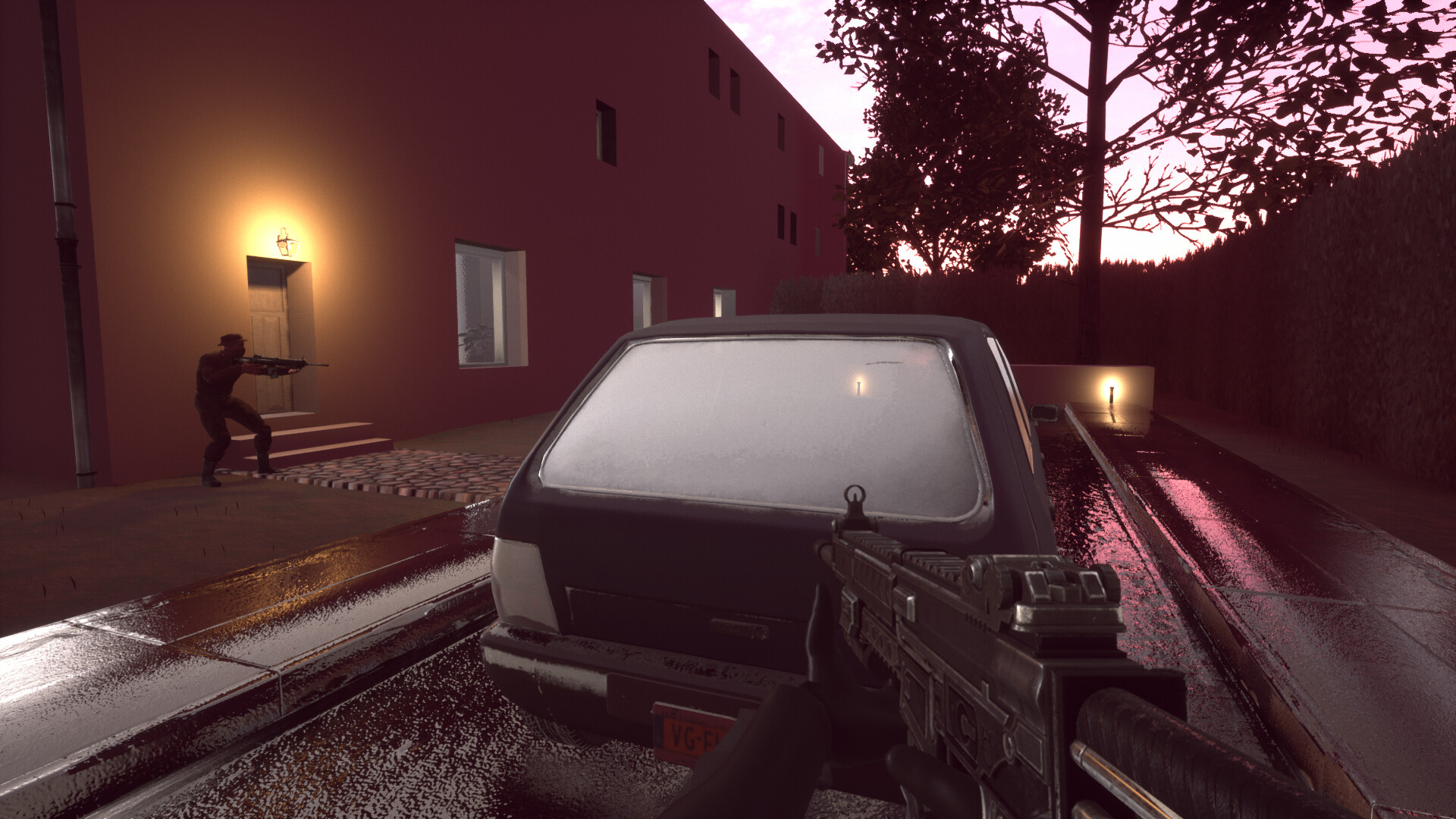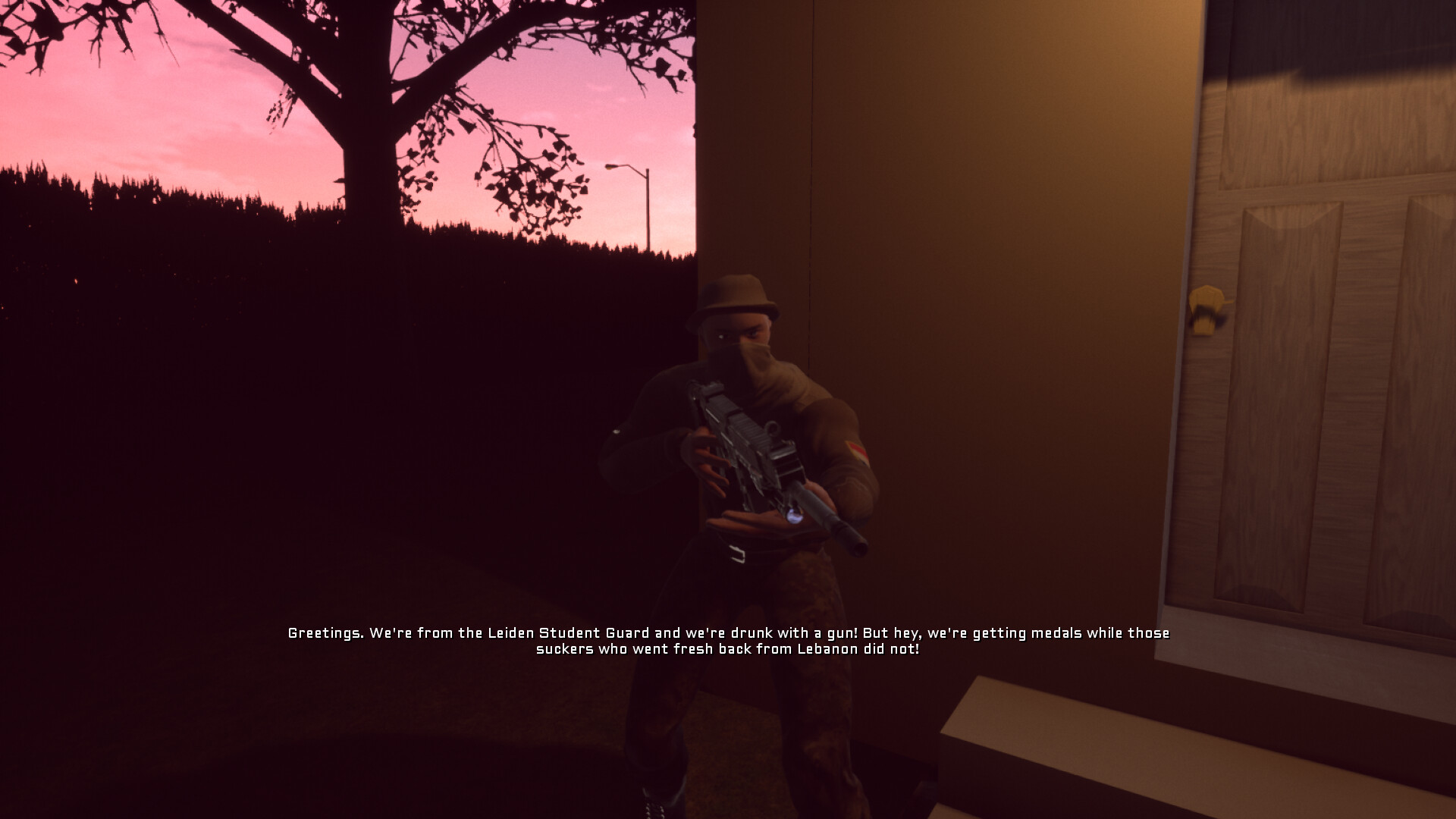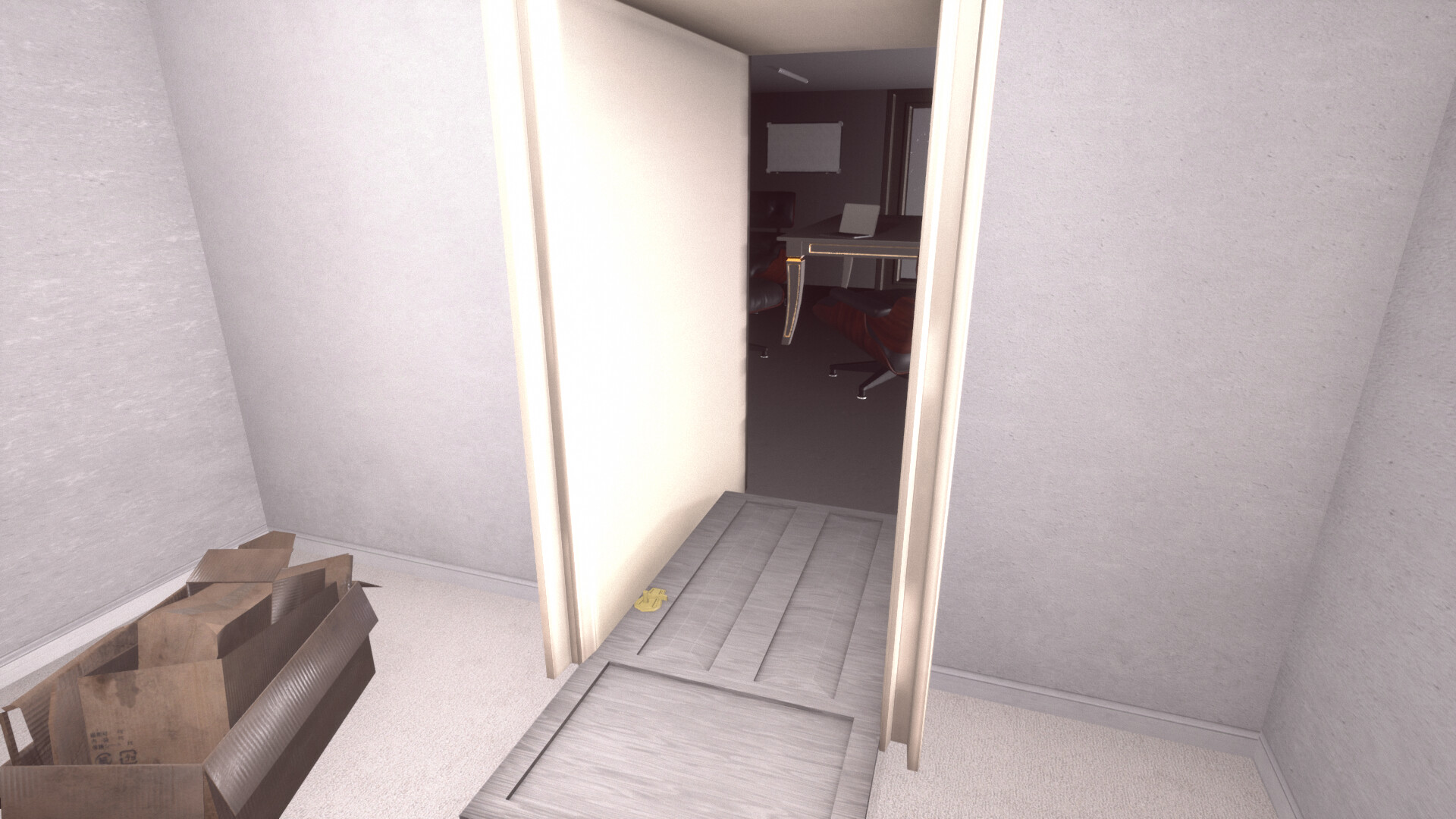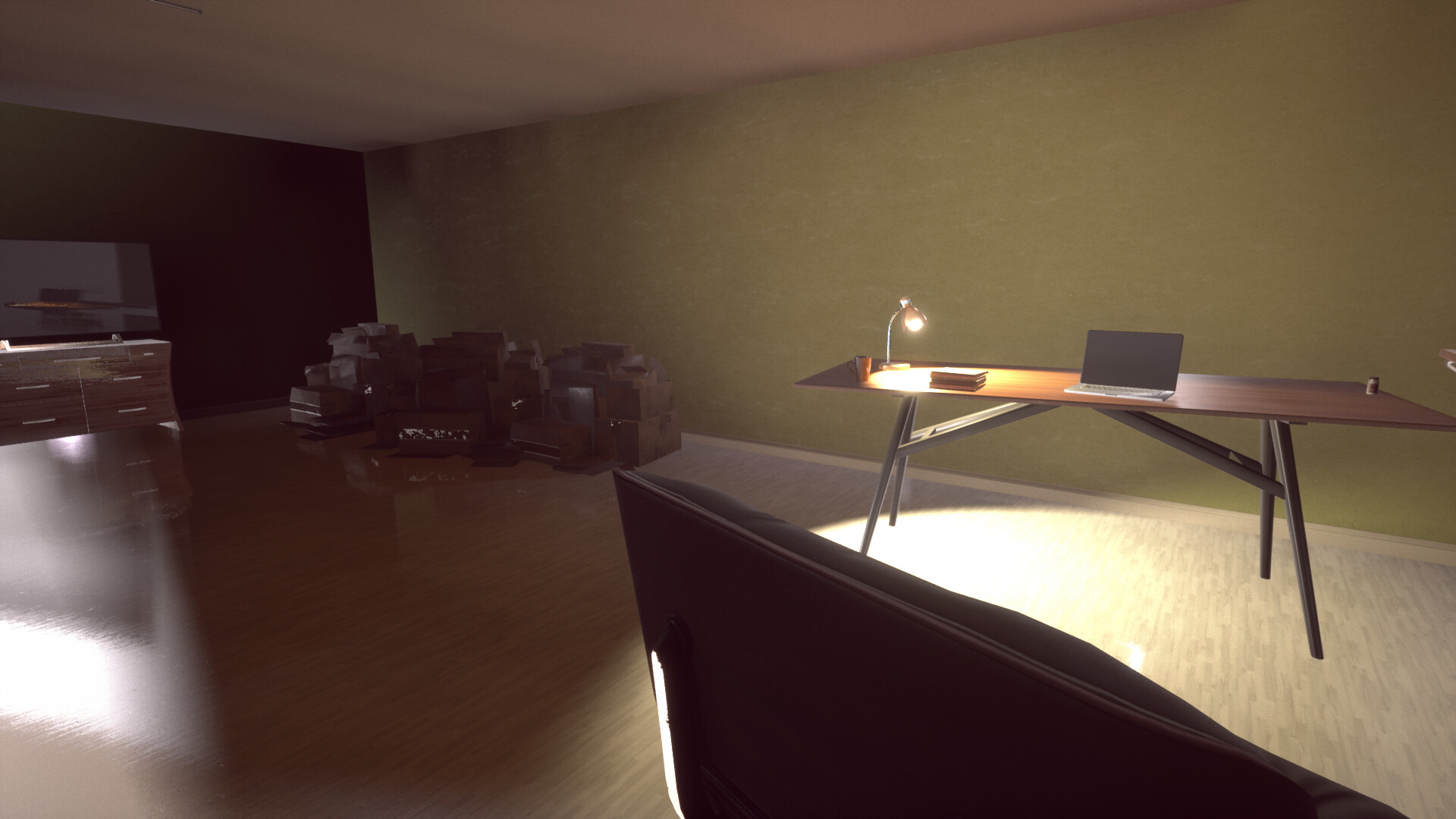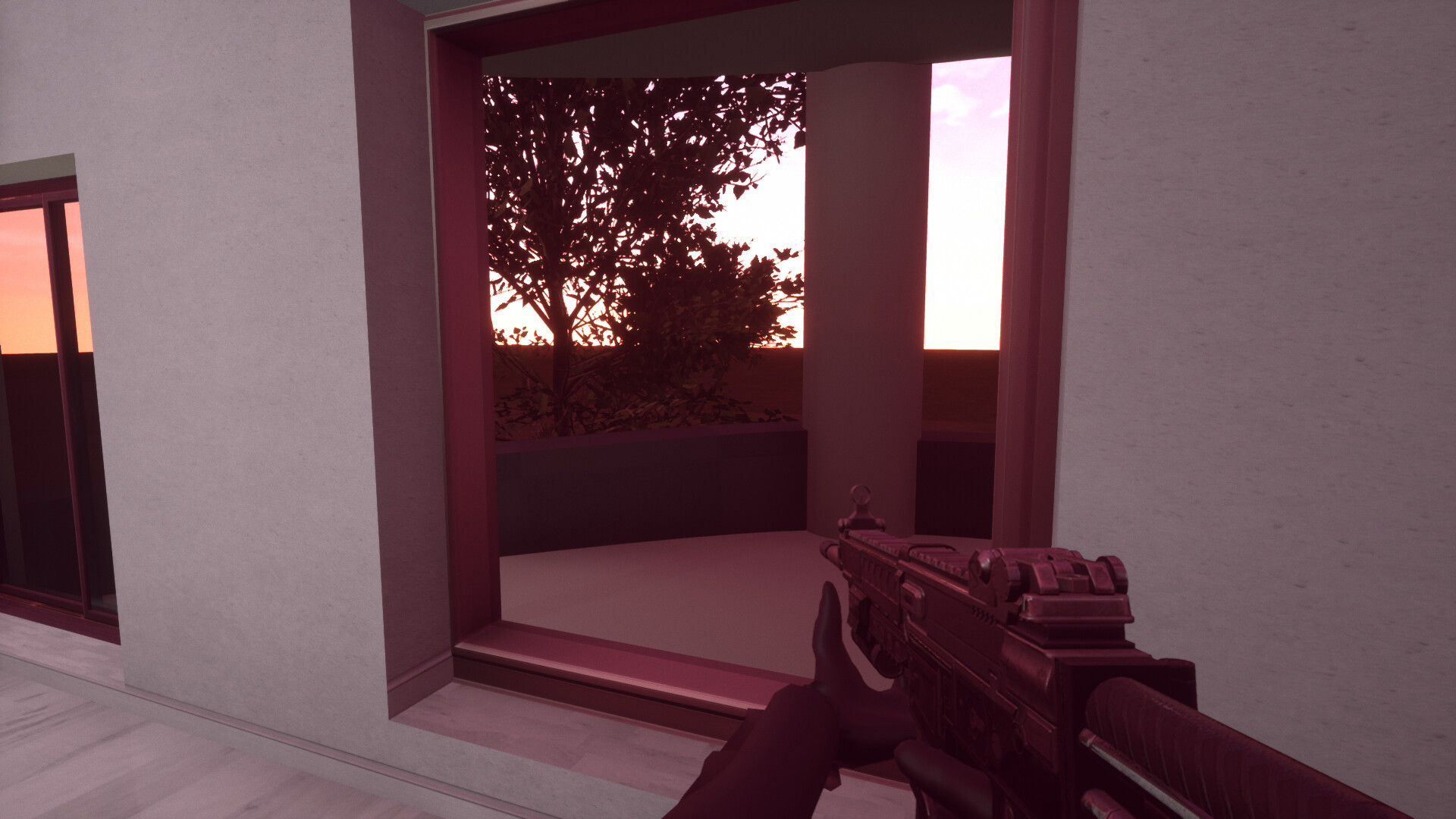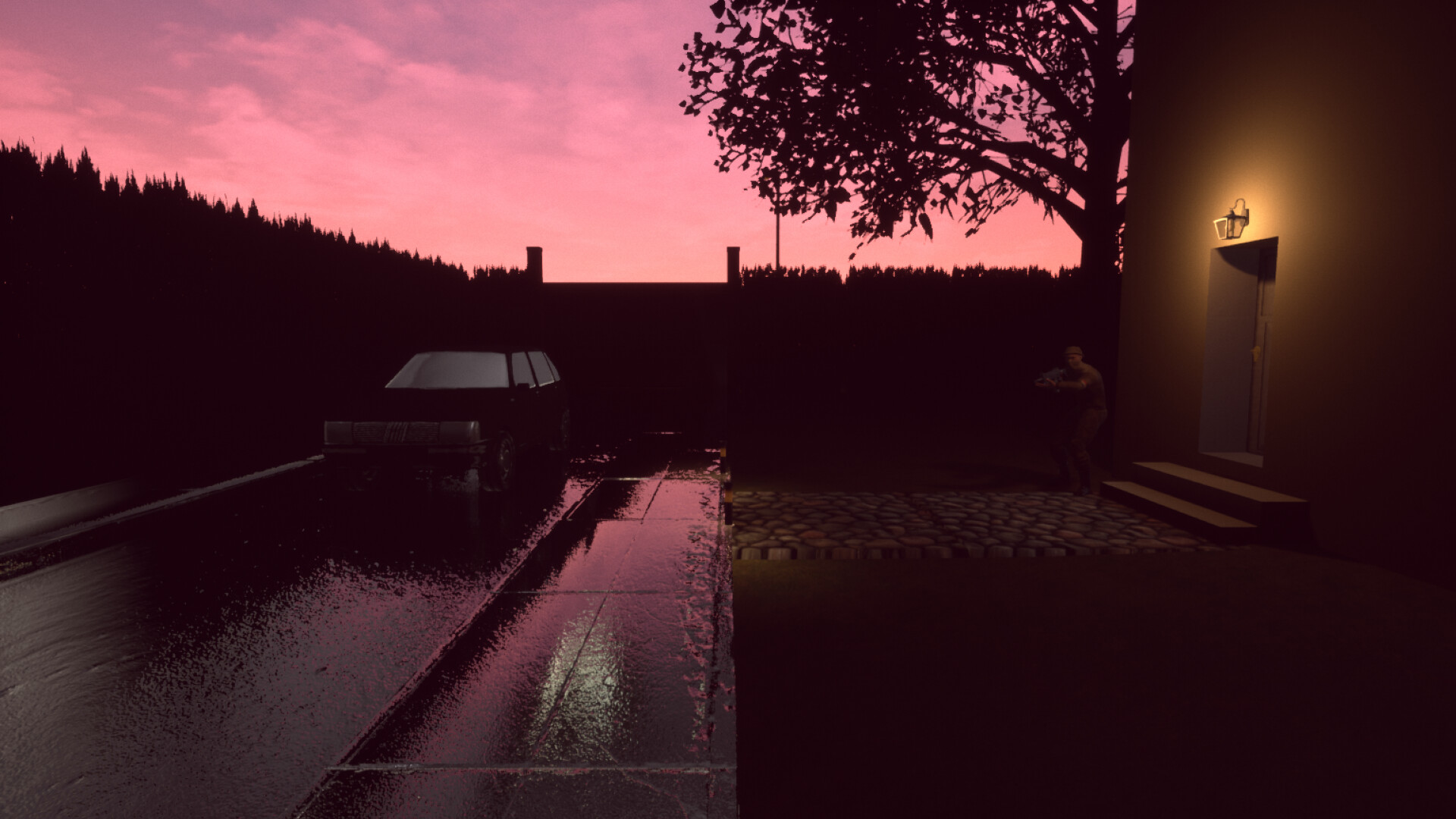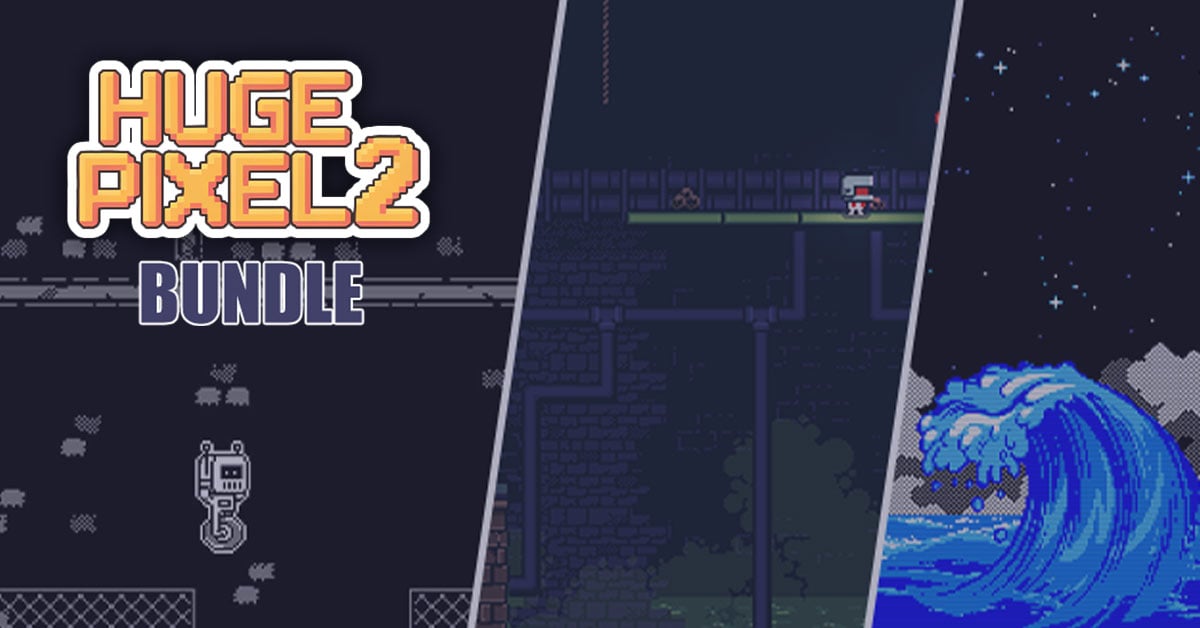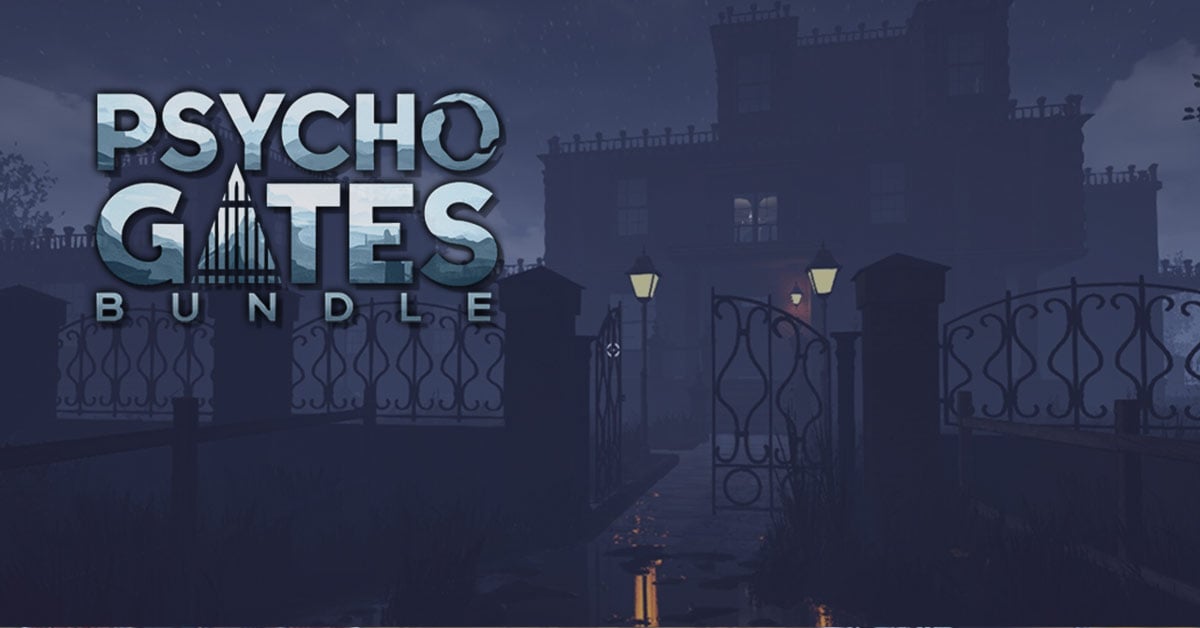The Game They Don't Want You To Play!
In this narrative-driven first-person immersive simulation, you start out with your first day at Knoll NV, a large multinational firm operating in the shady world of "litigation support" (or to put it plainly, privatized spooks). Among their clients are the van Hoorn family, a prominent Dutch old money dynasty based in "Holland's Finest Beach" of Noordwijk aan Zee, in turn renowned, or perhaps notorious, for being frequently visited by prominent figures from across the world.Yet, while the van Hoorns themselves are nowhere to be found, you do encounter state-sponsored terrorists masquerading as mere frat boys, dodgy business transactions, pervasive corruption and the rest. Of course, this is only the beginning, leaving you wondering whether you have been set up for a fool's errand. Get ready to set out on an odyssey to discover the truth, as you jump into a parallel world where you encounter the reality behind Europe's urban legends, political scandals and conspiracy theories. In order to survive in a brutal and decadent world, you must use your wits in either covert or violent ways.
Total Rendition is set in contemporary times and tells you a story of a world decades in the making as a result of buffoonery, stupidity and complacency. So, what will you do when that world is about to explode? Total Rendition may be the Game They Don't Want You To Play, yet it is perhaps by playing, that you may find out...
A Post-Truth Immersive Simulation
- You are anonymous, an unknown protagonist whose identity can only be decided by you.
- Uncover terrifyingly plausible political conspiracies at the most unexpected of places.
- Shoot, strike, sneak, sabotage or s#!t-talk your way into achieving your goals.
- Pierce through the thinly veiled facade of an ostensibly prosperous and hospitable community.
- Hyper-immersive first-person gameplay featuring an in-game smartphone which comes with its own Role-Playing Game. (Yes, we're serious!)
- Interact with nearly everything you find, or don't, as your capacity to carry items and weaponry may prove to be rather limited.
- Decide on upgrades for your character's skillset to reach objectives your own way.
- Ponder on difficult decisions to create a different experience with every playthrough.
- A narrative inspired by the most notorious political scandals to have plagued Europe since the beginning of the 20th century.
- BONUS: No microtransactions!
We have received a lot of "criticisms" over our development methodology. We have been accused of "asset flipping" for using placeholders and we have gotten at least one negative review premised on the false belief that most of Total Rendition's development lies behind us, instead of ahead of us.
However, to be perfectly honest, we have had anticipated all this bile well in advance and we are not deterred at all. Is Fallout: New Vegas a bad game because Van Buren was short and buggy? Of course not. Van Buren was a necessary stepping stone in making New Vegas.
However, if Total Rendition's critics' positions were to be taken to their (il)logical final destination, Fallout: New Vegas would be a "scam" because of Van Buren. Thus, Fallout: New Vegas would get a negative review counting each of Van Buren's bugs, you'll get the idea. Of course, some of you may then be thinking: "Why release that early?" Well, what is going to follow will describe our reasons why.
Back in the 1990s, publishers could just approach investors with pitches which sounded good and developers in turn could pitch to publishers in the hope these publishers would co-opt them. If the concept sounded good enough and the developers seemed to have a modicum of skills, getting a production budget to raise a development team to build a game was straightforward enough, the reasoning being that if you made a good game, people would come to play it. However, professional game reviewers can be bribed, critically acclaimed games can flop dramatically and Microtransactions are "social proof" ipso facto. And investors are taking note and so are publishers. As a cash-starved, understaffed studio, we are at their mercy and it shows. Yet, we are also taking the potshots for it.
When work on Total Rendition began in earnest in 2018, the General Design Document (or GDD) called for a Narrative-driven game of which the main storyline would last about a day or so, like the good old titles from the 1990s and early 2000s. However, to make these plans a reality, we would require a lot of investment from third-party investors and lots of it at that. We have had actually shown Total Rendition's GDD to Rockstar Games in 2018. They were not at all interested in co-opting it at the time. If they did, then Total Rendition probably would be developing at a much faster pace, would be looking much better already and perhaps many of our critics would have greeted Total Rendition with raving anticipation. Indeed, we ourselves had significant reservations of releasing Total Rendition in its current state.
Now, to be sure, this investment is not going to be raised directly from the sales from Total Rendition's Steam Early Access. If we were, then Total Rendition would not have appeared on Steam Early Access in the first place, as this is against Valve's policies. In fact, we had to conduct to painstaking negotiations with Valve to ensure any misunderstandings were ironed out. Ironically enough, even Total Rendition's haters are helping us to get closer to our intended end goals, as they leave evidence of having played the game. Investors want evidence that people are playing (and quite frankly, not much more than that), because that suggests to investors at least some will pay for it. Constructive critics will leave notes and feature requests we can use to improve Total Rendition as well.
By 2019, when it became apparent that large publishers and developers who could hypothetically have spared the funds we needed for Total Rendition, would hardly co-opt new titles, let alone Total Rendition, we decided to engage in development in-house. Too many Gamers blame developers, publishers and "SJWs" for the decline of narrative-driven gaming. However, if we game developers want to forswear microtransactions for unadulterated narrative experiences and make this feasible, we need to understand the business models of the 1990s are no longer feasible save for a lucky few, even if the period was artistically a golden age. No investor will back video game studios based on how good the latter's ideas are anymore and for now, we don't have the funds to field the development team we ideally would like.
Of course, we won't have Total Rendition leave Early Access until Total Rendition is the polished, lengthy and engaging narrative-driven experience we intend it to be, but unlike us, investors don't care if the quality or good or bad, even if it is them we need to convince to provide us with the development budget we need. One may observe that royalty-agreement-driven Indie-cum-AAA titles almost always collapse mid-development, if not sooner, often because these devs don't get the legals right and investors are generally reluctant of sharing. But as a result of us deliberately foregoing this strategy, we are currently very understaffed - especially in terms of 3D artists - until we have received the investment necessary to recruit them, hence all the placeholders. No worries, as we can still get there eventually.
In conclusion, if we ever want high net-worth individuals to write Schizotypy Games the cheques it needs to develop Total Rendition into its intended end-result, we really have no other option to do as we do. This, in due course, has gotten us a lot of opprobrium from those did not bother to read the Early Access notes and this (very real risk of) public outpouring is perhaps why most developers do not even bother in the first place. However, this does not change that Total Rendition is really a good faith effort to make the kind of large scale narrative-driven game which most established studios have neglected to make (properly) since 2015 or so. And this is why we won't budge: If we can complete Total Rendition, it can be vindicated by history!
Minimum Setup
- OS: Any Linux distro with a Linux 2.6 kernel
- Processor: Any x64 CPU built after 2015Memory: 4 GB RAM
- Memory: 4 GB RAM
- Graphics: Geforce 460 GTX or AMD or Intel equivalent
- Storage: 3 GB available space
Recommended Setup
- OS: Steam OS
- Processor: Any x64 CPU built after 2017Memory: 16 GB RAM
- Graphics: Geforce 960 GTX or AMD equivalent
[ 6176 ]
[ 5746 ]
[ 1265 ]
[ 2018 ]
[ 986 ]

